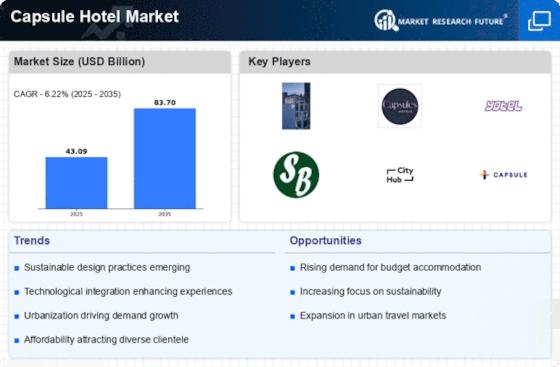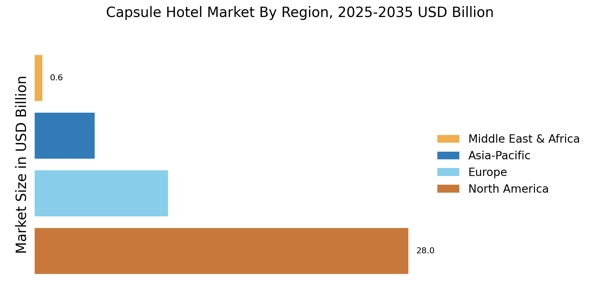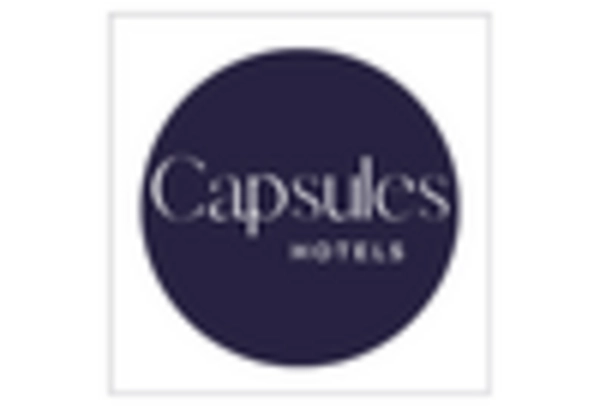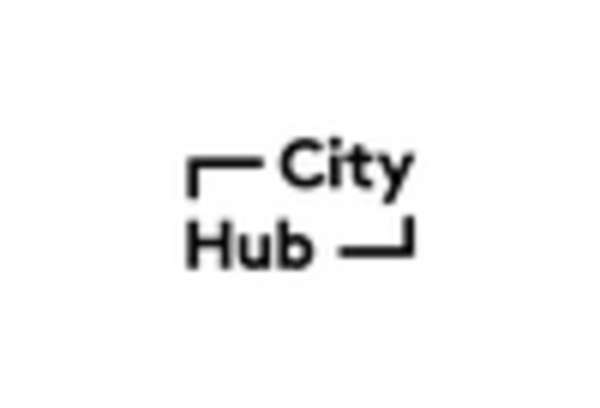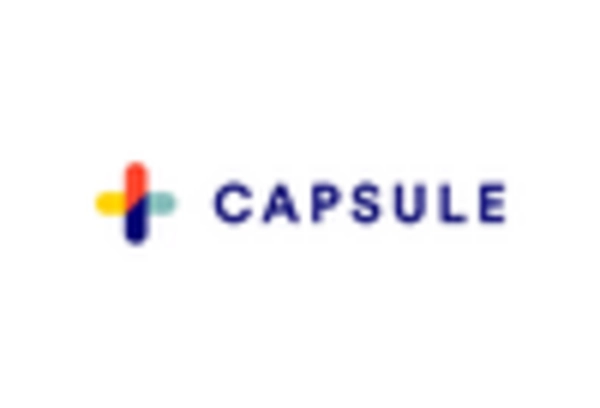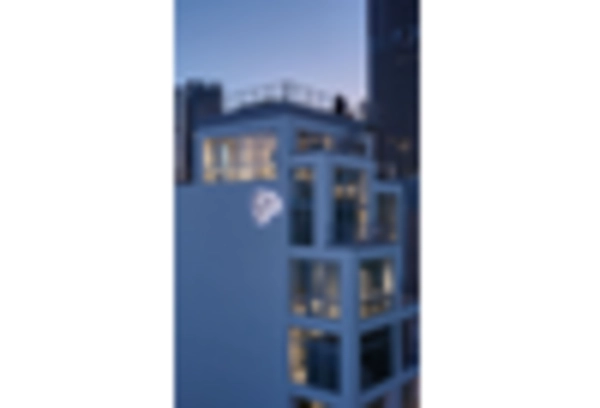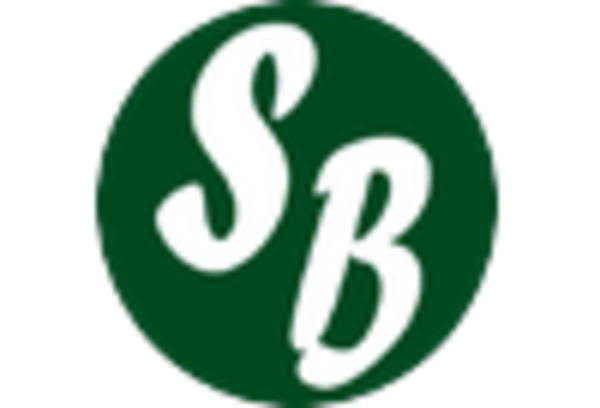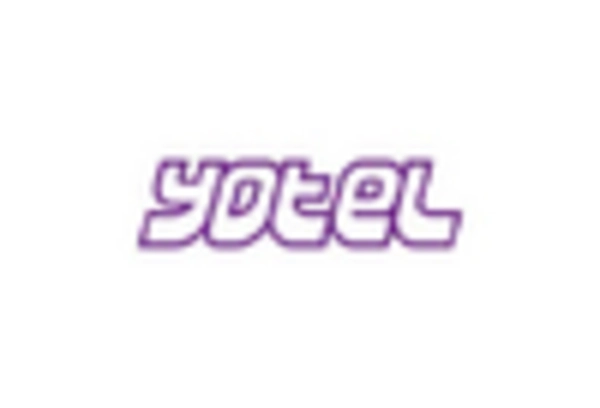Technological Advancements
The Capsule Hotel Market is increasingly shaped by technological advancements that enhance guest experiences and operational efficiency. Innovations such as automated check-in systems, mobile app integrations, and smart room features are becoming standard in capsule hotels. These technologies not only streamline operations but also cater to the tech-savvy traveler who seeks convenience and connectivity. For instance, many capsule hotels now offer high-speed internet access and charging stations within each capsule, addressing the needs of modern guests. The integration of technology also allows for better management of resources, contributing to sustainability efforts within the industry. As technology continues to evolve, its impact on the capsule hotel market is expected to grow, potentially redefining guest expectations and operational standards.
Increased Travel and Tourism
The Capsule Hotel Market benefits from the ongoing increase in travel and tourism activities. As international travel resumes and domestic tourism flourishes, the demand for unique and budget-friendly accommodations rises. In recent years, the travel sector has shown a steady growth rate of approximately 5 to 7% annually, with capsule hotels capturing a notable share of this market. These establishments attract a diverse clientele, including solo travelers, business professionals, and groups seeking economical lodging. The appeal of capsule hotels lies in their innovative design and communal atmosphere, which fosters social interaction among guests. This trend indicates a shift in consumer preferences towards experiential travel, further solidifying the role of capsule hotels in the broader hospitality landscape.
Changing Consumer Preferences
The Capsule Hotel Market is witnessing a shift in consumer preferences towards unique and experiential lodging options. Today's travelers, particularly millennials and Generation Z, are increasingly seeking accommodations that offer more than just a place to sleep. Capsule hotels provide a distinctive experience, combining affordability with a sense of community and adventure. This demographic values social interaction and shared experiences, which capsule hotels facilitate through communal spaces and shared amenities. Additionally, the minimalist design of capsules appeals to those who prioritize simplicity and functionality over luxury. As consumer preferences continue to evolve, the demand for innovative lodging solutions like capsule hotels is likely to rise, positioning them as a key player in the hospitality market.
Affordability and Cost Efficiency
The Capsule Hotel Market is experiencing a surge in demand due to the affordability and cost efficiency of capsule accommodations. With average nightly rates significantly lower than traditional hotels, these establishments cater to budget-conscious travelers. In many regions, capsule hotels offer rates that can be 30 to 50% less than conventional lodging options. This price advantage appeals particularly to young travelers and backpackers, who prioritize cost over luxury. Furthermore, the compact design of capsule hotels allows for higher occupancy rates, maximizing revenue potential for operators. As urban areas continue to grow, the need for affordable lodging solutions becomes increasingly pressing, positioning capsule hotels as a viable alternative in the hospitality sector.
Urbanization and Space Constraints
The Capsule Hotel Market is significantly influenced by urbanization and the increasing constraints on available space in metropolitan areas. As cities expand and populations grow, the demand for efficient use of space becomes paramount. Capsule hotels, with their compact design, provide a solution to the challenge of limited real estate. In densely populated urban centers, these hotels can be established in smaller footprints, allowing for more accommodations in less space. This trend is particularly evident in cities where traditional hotel development is hindered by high land costs. The ability to offer affordable lodging in prime locations makes capsule hotels an attractive option for both operators and travelers. As urbanization continues to shape the hospitality landscape, the relevance of capsule hotels is likely to increase.


